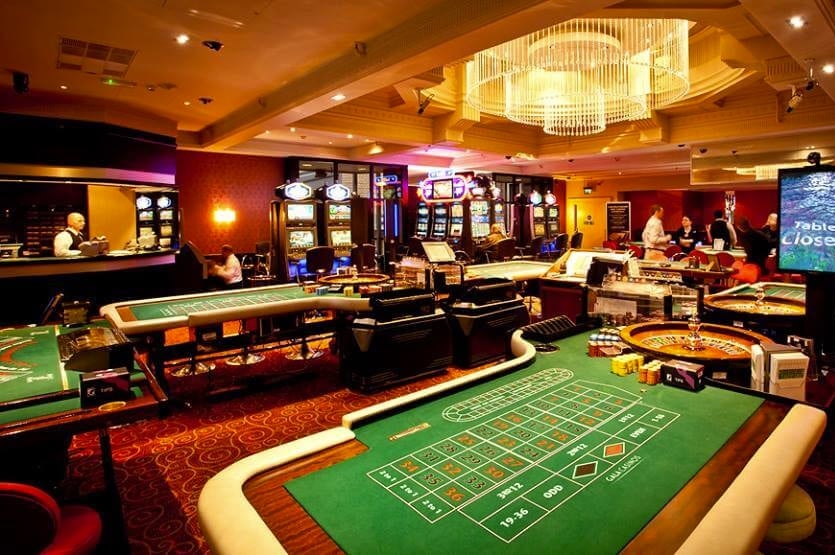Exploring Table Games: Beyond Randomness

When we think of casino games, the first pictures that often come to mind are those of spinning wheel devices, card tokens clinking on felt tables, and dice flying across a betting area. While many view these games as simple pastimes fueled by luck, a deeper exploration reveals a captivating blend of tactics, skill, and community interaction that elevates them well beyond simple chance. Whether you are a experienced player or a inquisitive newcomer, grasping the nuances of these games can greatly enhance your experience and appreciation.
Gambling games have evolved over hundreds of years, with different cultures contributing to their diverse histories and variations. From the intricate tactics of 21 to the bluffing tactics in poker, players engage in a contest of intellect as much as a gamble on numbers. This dynamic interplay between luck and expertise creates a thrilling atmosphere that draws millions to gambling establishments worldwide. As we delve into the realm of table activities, we will uncover the strategies that can tilt the odds in your advantage and the community elements that make these activities a favored choice for leisure and interaction.
The Approach Behind Casino Games
Casino games often combine a blend of skill and chance, which makes them intriguing for players who enjoy a challenge. Every game has its own set of rules and tactics that can affect the results. For example, in titles like blackjack, participants are required to use tactics like counting cards and grasping the odds to make informed decisions. This skill set can greatly improve the winning potential, distinguishing seasoned participants from novices who may depend entirely on luck.
In contrast, titles such as roulette may appear to be purely based on chance, but tactical thinking can also come into the equation. Participants can choose between various wagering tactics, such as the Martingale strategy, where they increase their bets after losses. This approach can establish a more methodical approach to the activity. Grasping the odds of specific bets can also assist participants make better decisions on the table, demonstrating that even titles of chance, strategy can enhance the experience.
Additionally, poker is notable as a title that strongly focuses on tactics. Unlike most gaming games, poker combines ability, psychology, and luck. Participants must also concentrate on the cards they are dealt but also consider their opponents behavior and wagering patterns. Mastering concepts like table position, pot odds, and interpreting bluffing is crucial for winning. This depth of tactics in the game of poker often leads to a more engaging experience for participants, as the decisions and abilities greatly affect the match’s results.
Grasping Likelihood and Odds
In the world of casino games, likelihood and odds play a critical role in deciding a player’s possible consequences. Every game has its own collection of principles that define how the probability of succeeding or failing is calculated. For example, in games like blackjack, players have a opportunity to influence their odds through planning, whereas in matches like the wheel, the results are purely dictated by luck. Grasping how these chances are measured can significantly affect how a player deals with the match.
Odds are typically expressed in two forms: fractional and numeric. OKE179 Fractional ratios represent the ratio of the sum won to the sum staked, whereas numeric odds show the total payout for a successful wager, including the stake. For example, if a game has odds of 5 to 1, this means that for every one dollar bet, a gambler could win five dollars if successful. Understanding how to understand these ratios enables gamblers to assess their potential earnings and formulate more educated choices during play.
Gamblers should also be conscious of the casino advantage, which is the casino’s inherent advantage over the gamblers. Each match has a different advantage, and grasping this concept is crucial for controlling one’s expectations and budget. Games with a lower advantage, such as blackjack and baccarat, typically offer superior ratios for players compared to games like slot machines and lottery. By understanding the relationship between probability, ratios, and the casino advantage, gamblers can enhance their gambling experience and plan more efficiently.
The Exciting Aspect of Table Gaming
Table games at casinos are often seen as a center of social interaction, drawing players together in a shared experience that extends far beyond the mere act of gambling. The atmosphere at a blackjack table can be vibrant, with players engaging not only with the game itself but also with one another. Joy, cheers, and, occasionally, friendly banter create connections that improve the overall experience of the gaming experience. This communal aspect can turn a alone endeavor into a dynamic gathering, making table games particularly enticing.
One of the fascinating elements of table gaming is the way it fosters friendship among players. Whether it’s teaming up to beat the dealer at a dice table or exchanging tales between hands in a card game, the environment encourages interaction. Participants often share advice or tactics, creating a sense of community that boosts the fun. This interpersonal atmosphere can make new players feel welcomed and less intimidated by the competitive nature of casino games. As the game continues, friendships may form, leading to a sense of connection that keeps players returning to the table.
Moreover, the social aspect of table gaming extends outside just the players. Dealers play a crucial role in facilitating interaction and maintaining the flow of the game. Their ability to engage gamblers with warm dialogue and their expertise in running the table can create an welcoming atmosphere. This relationship between players and staff adds another layer of enjoyment, where gamblers feel connected not only to each other but also to the staff. Such interactions are often what make the experience memorable, as participants leave with stories to tell and relationships made, reinforcing the notion that gaming at tables are truly about more than just chance.